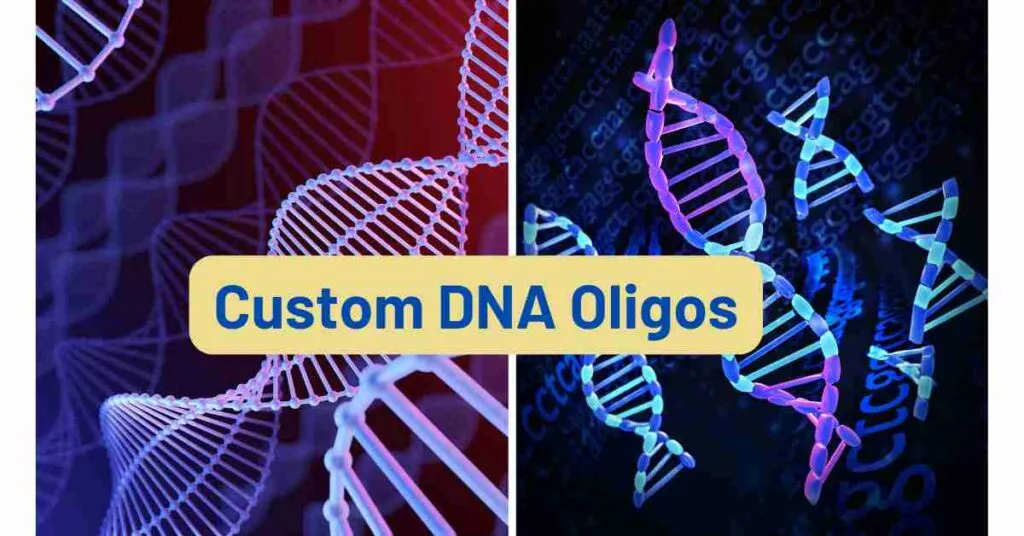Custom DNA oligos are vital for various applications in molecular biology and health diagnostics, including gene editing and PCR. Their effectiveness hinges on critical foundational concepts crucial for researchers and clinicians aiming to harness the full potential of these synthetic molecules in advancing genetic studies and improving diagnostic accuracy.
- Sequence Specificity
Custom DNA oligonucleotides are meticulously designed with high sequence specificity, allowing them to bind exclusively to complementary DNA or RNA sequences. This precision is essential in techniques such as PCR, gene editing, and diagnostic testing, where accurate binding ensures that only the target sequences are amplified or detected.
That significantly reduces the risk of off-target effects, leading to more reliable experimental results. Researchers can enhance specificity by selecting appropriate purification methods—such as Salt-Free, HPSF, or HPLC—and customizing oligo lengths, which typically range from 10 to 120 bases. That level of specificity is crucial for advancing molecular biology research and improving diagnostic accuracy.
- Complementarity of DNA Sequences
The concept of complementarity is essential for custom DNA oligos, influencing their design and functionality in health-related applications. This principle ensures precise base pairing between strands— (A) with (T) and (G) with (C).
By crafting these DNA primers that are the reverse complement of target sequences, researchers enhance the specificity and reliability of techniques like gene therapy, diagnostics, and personalized medicine. For example, a target sequence of “ATCG” would correspond to a designed oligonucleotide of “TAGC,” facilitating accurate binding.
Experts in genomics with a deep understanding of genetic sequences can optimize oligo design, troubleshoot issues, and validate their effectiveness. Such precision is critical in developing targeted treatments and improving the efficacy of molecular assays, ultimately leading to better health outcomes.
- Reliable Purification Options and Quality Control
Purifying tailored DNA oligos influences their quality and efficacy in healthcare applications. Techniques such as Salt-Free purification, High-Performance Size Exclusion Purification (HPSF), and High-Performance Liquid Chromatography (HPLC) help eliminate impurities that could hinder the oligo’s functionality, thereby bolstering the reliability of experimental results.
Their quality helps enhance precise diagnostics, targeted therapies, and research endeavours, as it ensures the specificity and efficiency of processes like PCR and gene editing. Researchers select the most suitable option based on modifications, cost, purity level, and volume, whether in freeze-dried or concentration-adjusted formats. Ideal choices safeguard oligos’ integrity and performance in diagnosis and personalized medicine.
- Chemical Modifications for Enhanced Performance
Chemical modifications of custom DNA oligos are essential for improving their performance and stability, particularly in health-related applications. Enhancements such as fluorescent labels allow for better visualization in diagnostic assays, while phosphorylation increases resistance to degradation, ensuring oligos remain functional in challenging biological environments.
Incorporating modified bases enhances binding characteristics, which is crucial for accurate gene targeting and editing. These tailored modifications are vital in clinical diagnostics, enabling oligos to withstand harsh conditions and provide reliable results. However, partnering with reputable genomics labs is crucial in guaranteeing high standards in synthesizing and purifying custom DNA oligos, thereby maximizing their efficacy in enhancing precision and improving patient outcomes.
In conclusion, embracing the power of custom DNA oligos is crucial as it enhances healthcare in diverse applications, from improving disease detection to enabling targeted therapies. However, identifying a genomics expert is essential for guidance to help maximize these probes’ efficacy. Such expertise ensures precision in oligo design and synthesis while achieving fast turnaround times, thus enhancing modern biomedical research and clinical practice.

